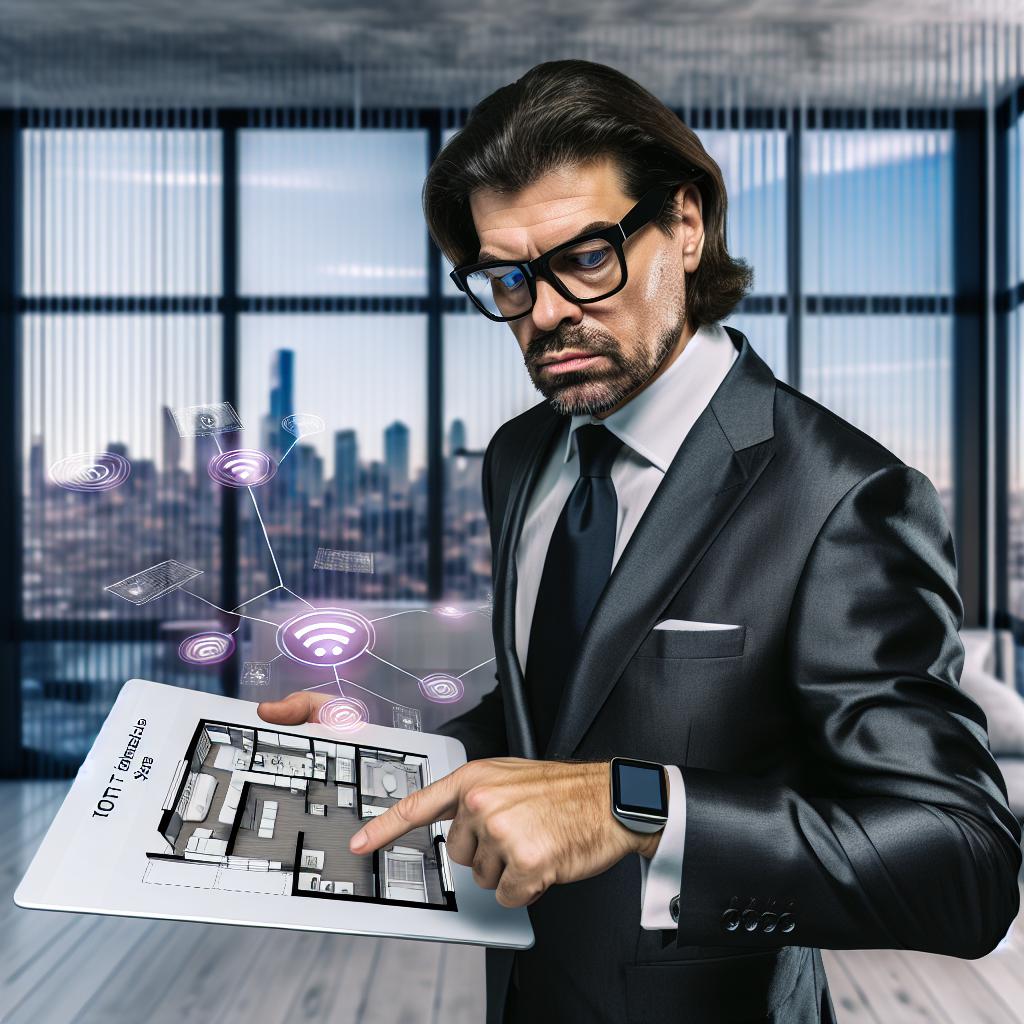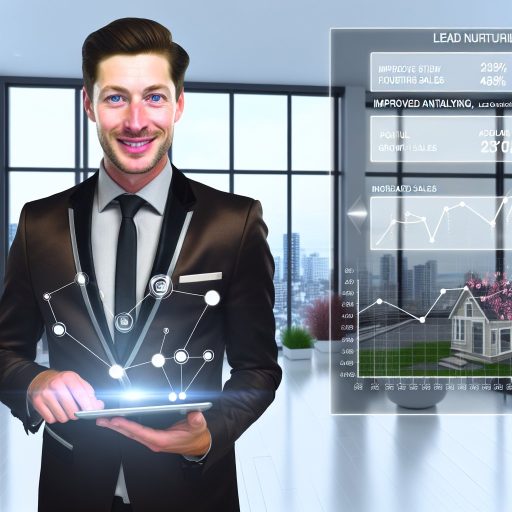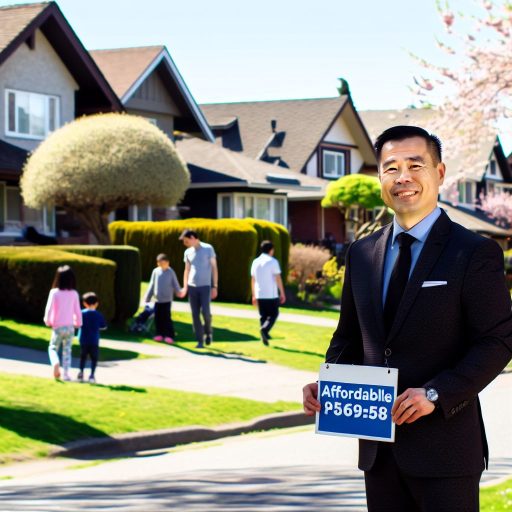Introduction to Smart Home IoT Technologies
Smart home IoT technologies enhance the living experience in residential properties.
They connect everyday devices to the internet for better management and efficiency.
As a result, homeowners enjoy improved convenience and security.
Definition and Importance
Smart home technologies include devices like smart thermostats, lights, and security cameras.
These devices communicate via the Internet of Things (IoT), creating a connected home ecosystem.
Consequently, they enable homeowners to control systems remotely.
Key Components of Smart Home Systems
Several key components make up smart home systems.
- Smart speakers serve as central hubs for device control.
- Smart locks provide secure entry for homeowners and authorized guests.
- Smart appliances automate everyday tasks, promoting efficiency.
These components work together to create an integrated home environment.
Benefits of Smart Home Integration
Smart home integration yields numerous benefits for homeowners.
- Enhanced energy efficiency reduces utility costs.
- Improved security features deter potential intruders.
- Increased convenience streamlines daily tasks and routines.
Thus, investors find smart home technologies appealing for enhancing property value.
Market Trends and Future Outlook
The adoption of smart home IoT technologies continues to rise in the USA.
According to recent studies, more homeowners are prioritizing smart features in their real estate searches.
Additionally, advancements in technology promise even more seamless integrations in the future.
As a result, real estate investments incorporating these technologies may see higher demand.
The Role of IoT in Enhancing Property Values
IoT stands for the Internet of Things, which connects devices to the internet.
Through this connection, homeowners can control their properties remotely.
For investors, IoT integration presents new opportunities in real estate.
Enhancing Energy Efficiency
IoT devices can significantly boost energy efficiency in homes.
Smart thermostats adjust temperatures based on occupancy patterns.
Energy-efficient homes tend to have higher property values.
Additionally, smart lighting systems reduce electricity consumption.
Improving Security Features
IoT enhances home security through smart devices.
Smart locks and cameras provide remote monitoring capabilities.
These features make properties more attractive to potential buyers.
Furthermore, enhanced security can lead to lower insurance premiums.
Streamlining Maintenance and Management
IoT devices enable predictive maintenance for various home systems.
For example, smart sensors detect water leaks before they escalate.
This proactive approach reduces repair costs and increases property longevity.
Investors benefit from lower operational costs over time.
Attracting Tech-Savvy Buyers
The demand for smart homes is rising among younger buyers.
Millennials and Gen Z prioritize technology in their home purchasing decisions.
Properties equipped with IoT devices are more appealing to this demographic.
This trend can elevate property values and marketability.
Boosting Overall Market Competitiveness
Incorporating IoT can differentiate a property in a crowded market.
Investors who adopt smart technology gain a competitive edge.
Innovative features can lead to faster sales and higher returns.
Moreover, properties equipped with IoT can demand premium pricing.
Overview of Popular Smart Home Devices for Real Estate
Smart Thermostats
Smart thermostats optimize energy usage efficiently.
They adapt to your schedule, saving costs over time.
Popular options include the Nest Learning Thermostat and Ecobee SmartThermostat.
Smart Security Systems
Home security devices enhance property safety significantly.
They include smart locks, doorbell cameras, and alarm systems.
Ring and Arlo offer reliable smart security solutions.
Smart Lighting Control
Smart lighting adds convenience and energy efficiency.
Devices like Philips Hue enable remote control of lights.
Users can set schedules or moods for various occasions.
Smart Plugs and Outlets
Smart plugs transform regular devices into smart ones.
They allow remote control of lamps and appliances easily.
Brands like TP-Link and Wemo provide user-friendly options.
Smart Home Assistants
Smart assistants simplify home management tasks.
Devices such as Amazon Echo and Google Nest Hub are popular choices.
They provide voice control for various smart home devices.
Smart Appliances
Smart appliances improve everyday functionality dramatically.
Refrigerators, ovens, and washing machines now come smarter.
Brands like Samsung and LG lead the market with innovative options.
Benefits of Integrating Smart Home Devices
Integrating smart home devices offers numerous advantages.
Firstly, they increase property value in the real estate market.
Additionally, they attract tech-savvy buyers looking for modern amenities.
Moreover, energy-efficient devices lower utility bills significantly.
Finally, improved security enhances peace of mind for homeowners.
Uncover the Details: Real Estate Mobile Apps for Real-Time Property Valuation and Reports
Benefits of Smart Home Integration for Homeowners and Renters
Enhanced Convenience
Smart home devices offer exceptional convenience for daily living.
For instance, homeowners can control lighting remotely.
Similarly, renters can adjust thermostats while away.
These technologies enable simple automation of household tasks.
Improved Energy Efficiency
Integrating smart technologies promotes energy efficiency.
Smart thermostats learn schedules and optimize heating or cooling.
LED smart bulbs reduce energy consumption compared to traditional lighting.
Homeowners can track energy usage in real time.
Enhanced Security Features
Smart home systems significantly bolster security measures.
Smart cameras and doorbells provide monitoring capabilities.
Homeowners receive alerts about suspicious activities instantly.
Automated door locks increase peace of mind for renters.
Increased Property Value
Smart home technology can increase property value over time.
Investors see a return on their technology investment.
Smart features may attract more buyers or tenants.
Improved Quality of Life
Smart homes contribute to an enhanced lifestyle and wellbeing.
Automated features can reduce stress and save time.
Homeowners and renters enjoy a more personalized living experience.
Convenience translates into a better daily routine.
Explore Further: Real Estate Market Analytics Tools for Real Estate Investment Trends
Challenges and Considerations for IoT Implementation
Understanding the Technical Challenges
Implementing IoT solutions often involves complex technical challenges.
Device interoperability is a significant concern for real estate investors.
Many devices use different communication protocols and technologies.
This lack of standardization can lead to integration difficulties.
Additionally, network reliability is crucial for IoT functionality.
Poor connectivity can result in compromised device performance.
Addressing Security Risks
Security remains a major issue in IoT networks.
Every connected device presents a potential entry point for cyber threats.
Investors must prioritize robust security measures.
This includes using encryption and regular software updates.
Furthermore, conducting vulnerability assessments is essential.
Considering Cost Implications
Cost plays a critical role in IoT implementation decisions.
Initial setup costs may be substantial due to equipment and installation.
Ongoing maintenance and management expenses can accumulate quickly.
As a result, investors need to evaluate long-term ROI.
Understanding these costs can help in budgeting effectively.
Evaluating Consumer Acceptance
Consumer acceptance is vital for the success of IoT investments.
Homebuyers may have varying degrees of comfort with smart technology.
Hence, educating potential buyers about benefits can foster acceptance.
Investors should consider home automation trends and preferences.
Understanding these dynamics will aid in successful property marketing.
Regulatory and Compliance Considerations
Real estate investors must navigate complex regulatory landscapes.
IoT deployments must comply with local laws and regulations.
Privacy regulations, like GDPR or CCPA, can impact data collection practices.
Additionally, ensuring compliance with building codes is critical.
Legal adherence minimizes risks associated with penalties and fines.
Uncover the Details: Real Estate Website Optimization to Improve Visibility and Lead Conversion

Case Studies of Successful Smart Home Implementations in the Real Estate Market
Real estate investors increasingly adopt smart home technology.
This adoption enhances property value and appeal.
Smart homes offer convenience and efficiency to residents.
In this section, we will explore several successful case studies.
Greenwood Heights Smart Home Community
Greenwood Heights is a notable smart home community in California.
This community integrates various IoT devices for optimal living.
Residents enjoy smart thermostats, security systems, and lighting.
These features significantly reduce energy consumption.
Moreover, home automation promotes a secure living environment.
Benefits Realized
Property values increased by over 15% following the integration.
Homeowners report an average savings of 30% on energy bills.
In addition, the community experiences lower crime rates.
Smart home features attract tech-savvy buyers.
Sunnyvale Apartment Complex
Sunnyvale implemented smart technology for its apartment units.
Each unit includes smart locks and remote monitoring systems.
These advancements provide residents with peace of mind.
The complex also features shared amenities equipped with IoT devices.
Positive Outcomes
Occupancy rates rose by 25% since implementing smart technologies.
Residents report higher satisfaction levels due to convenience.
Furthermore, the development has gained recognition in the market.
Smart features contribute significantly to the complex’s appeal.
Maplewood Single-Family Homes
Maplewood recently transformed traditional homes into smart homes.
They incorporated smart kitchens, baths, and energy management systems.
These improvements have made the homes highly desirable.
Impact on Property Value
The average home price in Maplewood increased by 20% post-implementation.
Buyers appreciate the long-term cost savings offered by smart features.
Additionally, the marketability of homes improved dramatically.
Real estate agents highlight smart integration in their listings.
Innovation in Real Estate Marketing
Many real estate firms now focus on smart home technology in marketing.
This strategy showcases properties with unique selling points.
Interactive virtual tours highlight smart home features effectively.
Potential buyers value transparency regarding technology benefits.
Examples of Effective Marketing
Videos demonstrating smart home capabilities have gained popularity.
Moreover, social media campaigns reach tech-oriented audiences.
Agents utilize online platforms to educate buyers about integrations.
As a result, properties sell faster and often above asking price.
See Related Content: IoT Water Leak Detection for Real Estate Owners
Future Trends in Smart Home Technology and Real Estate Investments
Transformation of Living Spaces
Smart home technology is rapidly transforming living spaces across the United States.
Homebuyers increasingly favor properties equipped with advanced tech solutions.
This trend reflects a growing demand for energy-efficient and automated homes.
Moreover, real estate investments now emphasize properties that support smart technology integration.
Property value appreciation often comes from smart home features such as security systems.
As technology evolves, these features will become standard in new developments.
Integration of Renewable Energy Sources
Investors are increasingly focusing on homes that integrate renewable energy.
Solar panels and smart energy management systems appeal to eco-conscious buyers.
This shift helps homeowners reduce utility costs while decreasing their carbon footprint.
Consequently, properties with renewable energy integration can command higher resale values.
The trend encourages builders to implement sustainable practices in new constructions.
Enhanced Security Features
Security remains a top priority for homebuyers in today’s market.
Smart home systems provide advanced security measures, including remote monitoring.
Features like smart locks and cameras enhance the safety of residential properties.
Investing in properties with integrated security solutions may increase appeal to buyers.
Furthermore, peace of mind provided by these technologies can drive demand and sales.
Data-Driven Insights for Buyers and Investors
The use of data analytics in real estate is on the rise.
Smart technologies collect data that can inform buying decisions and investment strategies.
Insights into energy consumption, security patterns, and maintenance needs drive informed choices.
As a result, properties that harness data will likely attract more attention from savvy investors.
Investors who leverage these insights can maximize their returns effectively.
Smart Home Customization
Customization options for smart homes are expanding significantly.
Homebuyers increasingly seek properties that allow personalized tech solutions.
This demand encourages developers to offer customizable smart home packages.
As customization becomes a selling point, it can enhance a property’s marketability.
Investors should consider homes with flexible tech setups to attract diverse buyer preferences.
Legal and Regulatory Considerations for Smart Home IoT in Real Estate
Understanding Regulations
Smart home IoT technologies face numerous regulations.
The Federal Communications Commission governs communication technologies.
Privacy laws protect consumer data, like the California Consumer Privacy Act.
Investors must understand these laws to avoid penalties.
Building Codes and Standards
Smart home installations must comply with local building codes.
Inspectors ensure safety and functionality are up to standards.
Outdated codes may not cover new technologies adequately.
Consulting local authorities can clarify compliance requirements.
Consumer Protection Laws
Consumer protection laws prevent deceptive practices in real estate.
Disclosures about IoT functionalities are necessary for buyers.
Failure to disclose could lead to legal repercussions.
Always provide accurate information about smart home systems.
Liability and Insurance Issues
Liability concerns arise with smart home technology failures.
Landlords should consider insurance policies that cover IoT devices.
Failure to address liability can result in financial loss.
Each investment must assess risk before renting or selling properties.
Future Legislative Trends
Legislative trends are moving toward stricter regulations.
Privacy issues related to smart devices are gaining attention.
Stay informed about changes that affect the real estate market.
Taking proactive steps can protect investments in smart technologies.




